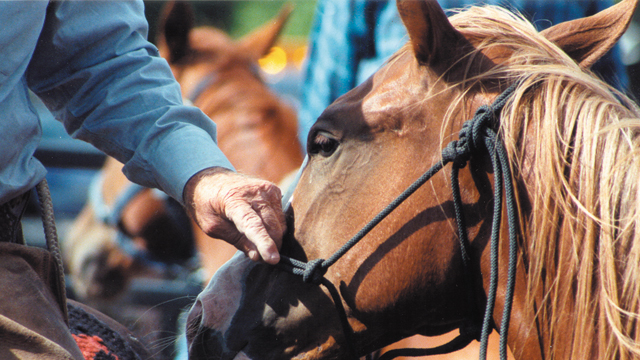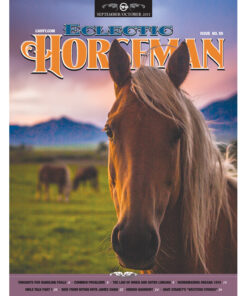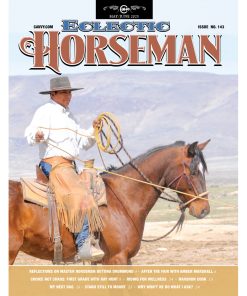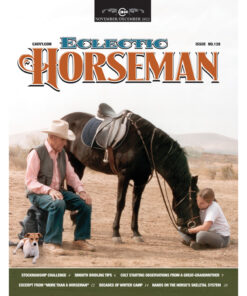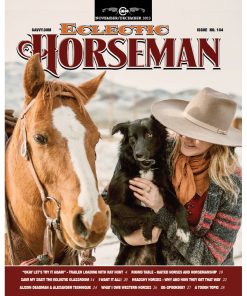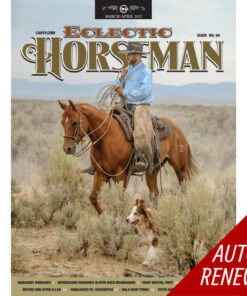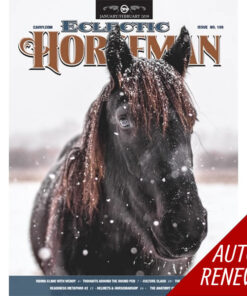There’s this thing about working with horses… it’s one of those things that is responsible for making working with horses difficult, soul-shattering hard work. And I don’t want to be a Debbie Downer here, but it’s one of those kind of hard-to-swallow universal truths about horses that we sometimes really wish wasn’t so.
But it is so. And really, I wish this was the first thing we were taught about horses.
Horses seek the level of the person/people working with them.
Yes, I too wish that wasn’t true, because I’d rather it wasn’t that easy to get a report card on my work. But it is true. Sometimes sooner, sometimes later, for better or for worse, eventually our horses will end up at our level.
This phenomenon explains a lot of what goes on in the horse world. This explains why a horse could be a complete “angel” for the trainer and then not work very well for the owner. It could also explain why the horse could do really well in training, and do well for a while after coming home, and then gradually unravel later and require a “tune up.” It could explain why a horse could get sold, and once the new owner got it home and lived with it for a bit, it didn’t at all seem to be the horse they went to try, and that buyer might think the seller lied about the horse. It explains why two different people might have two totally different experiences with the same horse, even on the same day. For one rider, perhaps the horse is forward, soft and willing, and for another rider, the horse is dull, unmotivated and bracey. It explains why instructors and trainers want horse owners to take lessons.
You knew that’s where I was going with this, didn’t you? A horse can’t do better than what we can do. He can’t surpass our ability. We are his limiting factor. I know that’s tough to swallow. I wish it wasn’t so, but it is.
Think of it this way. If I partnered with a world-class ballroom dancer, how much dancing would they get done with ME, a middle-aged stroke survivor with very limited experience with dancing? How much dancing would they get done with another world-class, educated, experienced ballroom dancer?
Now, that’s not to say that the world-class dancer couldn’t dance with me and teach me. It doesn’t mean we couldn’t be friends. But if they were teaching me, until I got to their level (if ever), they would not be doing much high-level dancing. They’d be teaching me the box step. They’d have to come to my level. That’s kind of what we’re talking about here.
It’s up to us to choose what to do with this. Some folks will carry on blaming the horse for their own shortcomings. Other folks will wail about “not being good enough to deserve to own _______________ insert name of magical unicorn here)” just so someone will disagree with them and validate them. Some people just seem to be able to dodge this bullet, so to speak. But most of us are going to be subject to this universal truth.
Part of what makes horses so interesting and wondrous is this “plasticity” or “malleability” that they have. They aren’t stone, or diamond, or carbon steel, they’re A HORSE, and they are moldable and adaptable. And yes, horses are a mirror, but keep in mind that any horse that’s been touched or trained by others is not a “pure” mirror because he will likely have the fingerprints of the others on him. That makes a difference. Sometimes they’re helpful fingerprints, sometimes not. But the point is, this plasticity is part of what makes a horse a HORSE, if you see what I mean.
If we take this plasticity away through Learned Helplessness, or other techniques, what’s left is a horse, minus some of his most “horsey” attributes, his awareness of and responsiveness to what is happening in THIS MOMENT and his instincts as a herd and a prey animal. There is so much about a prey animal that is about sensing things in the moment and responding in the moment. Humans like things a bit more cut-and-dried than that, and I get that. That’s how HUMANS are.
All the great masters of horsemanship, across space and time and discipline say something like, “The horse never lies.” We love how mystical that sounds, but we hate it when it means that the horse is now our critic. We say he’s our best teacher, but then we tie his mouth shut. We make excuses, we create crazy fictions to protect our egos, we finagle it around so that only the horse’s positive feedback is valid.
I understand how frustrating this is as a student. It is supremely frustrating to see someone take YOUR horse, and have no trouble at all with the thing you are struggling with. I agree. That sucks. But that’s exactly what we need to be studying. HOW is what they did different from what we do? What were they thinking about? How were they breathing? What past experiences were they drawing on? How did they deal with any doubts or thoughts of failure? What did they do with their hands, their fingers, their legs, their feet, their tongue? Remember what I said at the beginning, that we were going to wish this wasn’t true? Now you know why. This is a tough truth.
A lot of instructors spend a lot of time wondering why more people aren’t knocking on their door or driving in their driveway. A lot of trainers have done a lot of mental gymnastics to justify getting paid to train a horse when they know darn well they’re going to send it home to a person who hasn’t changed at all since the horse left.
I don’t want you to take lessons or learn more somehow so you can look good on a horse, or compete in some discipline, or enjoy yourself on a trail ride, or whatever. I want you to take lessons or learn more so your horse does not have to bear the brunt of your frustration. He is doing the best he can with the information you’re providing. I want you to provide good information.
And I’m here to tell you that everyone, read that, EVERYONE can improve themselves for their horse. People with limited time, limited resources, limited physical ability, limited experience, limited whatever… everyone can improve for their horse. It might take the right teacher, or the right timing, or the right format or the right something else, but the only way we’ll fail is if we just don’t do it.
Bring horsemanship home. Subscribe today!

